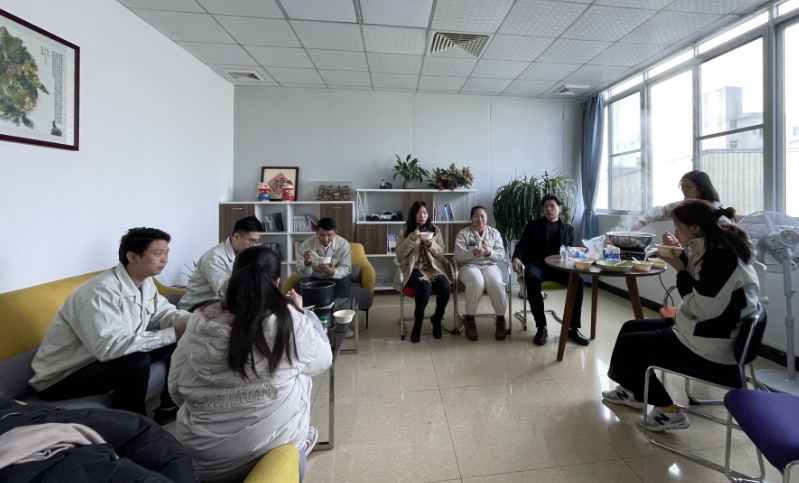22 Dec 2023 is Chinese traditional Festival -Winter Solstice
Our company Guangzhou Talents Cosmetics Packaging Co., Ltd
Introduction:
The Winter Solstice, or "Dōngzhì" in Chinese, is a significant traditional festival that holds great cultural and historical importance in China. Celebrated on the shortest day and longest night of the year, usually occurring around December 21st or 22nd, this occasion marks the turning point when daylight hours gradually increase, symbolizing the rebirth of light and the arrival of warmer days. Chinese people have been observing this festival for centuries, and it continues to be cherished as a time for family reunions, cultural traditions, and enjoying hearty food.
1. Historical Significance:
The Winter Solstice festival dates back over 2,000 years and can be traced to the Chinese belief in the yin and yang philosophy and the concept of balance in the universe. It signifies the transition from darkness to light and is therefore associated with the return of positive energy and the renewal of life.
2. Family Reunion:
Just like the Mid-Autumn Festival and Chinese New Year, Winter Solstice is an occasion for family members to come together and celebrate. It is a time when people prioritize family reunions, pay respects to ancestors, and honor familial bonds. Gathering around a table filled with traditional dishes is a central part of the celebration, fostering a warm and harmonious atmosphere.
3. Tangyuan: The Signature Food:
Tangyuan, or glutinous rice balls, have become the symbolic dish of the Winter Solstice festival. These sweet dumplings, made from glutinous rice flour and shaped into small balls, are typically filled with various sweet fillings like sesame paste, red bean paste, or crushed peanuts. Commonly served in a hot, sweet ginger soup, tangyuan represents reunion and unity within families.
4. Health and Well-being Traditions:
In addition to being a time for family, the Winter Solstice festival is associated with rituals that promote good health and prosperity. One popular tradition is to eat "jincai," or kale, which is believed to bring financial fortune and ward off evil spirits. People also take part in various activities such as taking hot baths with herbs to cleanse the body, practicing exercises like tai chi or qigong, and engaging in activities that cultivate positive energy.
5. Cultural Customs:
Aside from indulging in delicious food and spending quality time with loved ones, the Winter Solstice festival encompasses a range of vibrant cultural customs. These include making and displaying colorful paper-cut decorations, offering sacrifices to ancestors, enjoying folk performances, reciting poems and songs, and playing traditional games like guessing riddles. Many of these customs vary across different regions in China, adding to the richness and diversity of the festival.
Conclusion:
The Winter Solstice festival holds a special place in Chinese culture and serves as a reminder of the importance of family, unity, and renewal. It provides an opportunity for people to connect with their roots, honor their ancestors, and appreciate the traditional values that have been passed down through generations. As the daylight increases after the Winter Solstice, it serves as a beacon of hope and a reminder that brighter days lie ahead.
So, this year, as the Winter Solstice approaches, let us embrace the traditions and celebrate the richness of this festival with our loved ones. May the warmth and joy of family gatherings, the delicious flavors of tangyuan, and the cultural customs bring us closer together and create lasting memories that will be treasured for years to come.

















